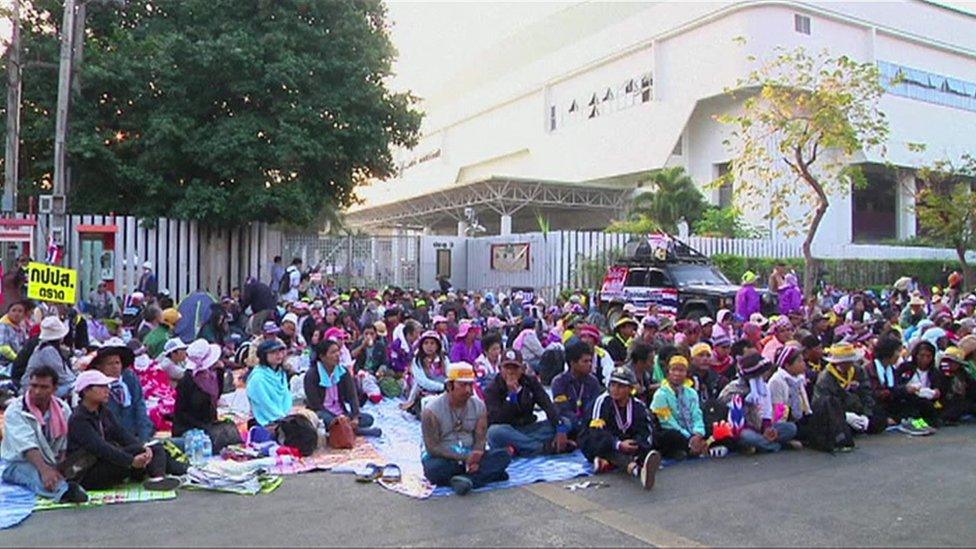Thai protests: Attackers strike Bangkok protest camp
- Published
Jonathan Head in Bangkok says there is a very tense atmosphere in the city
Attackers have thrown explosives at anti-government protesters in Bangkok, injuring at least 28 people.
The explosions hit activists who are aiming to shut down Thailand's capital and force the government to quit.
A protest leader said the attackers were chased, but escaped on mopeds after shooting at their pursuers.
On Friday, a similar attack left one person dead. The protesters accuse the government of being run by exiled former leader Thaksin Shinawatra.
Current Prime Minister Yingluck Shinawatra, Thaksin's sister, has refused to resign.
She called an election scheduled for 2 February to pacify the protesters.
Police released CCTV they said showed a man throwing an explosive device
However, the activists now want a complete overhaul of the system to be led by an unelected council, and the main opposition Democrat party has refused to take part in the vote.
The protesters have been camping at major road junctions in Bangkok since last Monday in a bid to shut down the city.
Sunday's attack struck camps at the Victory Monument, a major road junction.
Former Democrat MP Thaworn Senneam, leading the protests at the monument, said he believed the attackers had targeted him.
He told the Bangkok Post, external that one attacker threw an explosive that landed 20m away from him.
The attacker was chased by security guards and protesters, but escaped after firing shots and throwing another bomb, he said.
Medical officials said 28 people had been taken to hospital, seven of whom had serious wounds from shrapnel.
Thai protesters on both sides of the political divide have launched mass protests in recent years, and have often been the subject of low-level attacks.
The perpetrators are rarely caught.
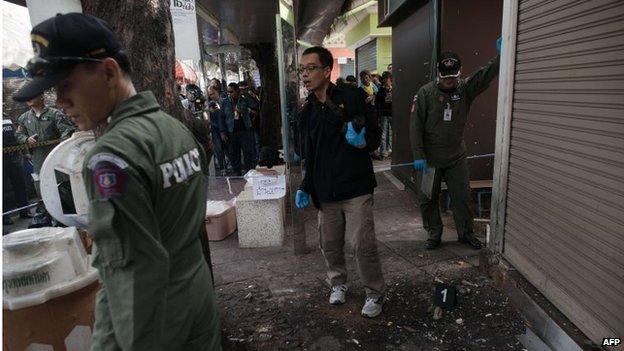
Bomb squad officers inspected the scene of the attack at the Victory Monument
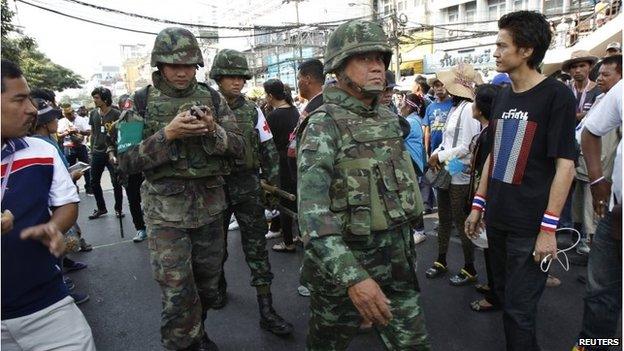
Dozens have been injured and at least eight people killed since protests began in November last year
Thai politics is polarised around supporters and critics of Mr Thaksin.
The parties he set up and their successors have won the last five elections, thanks to solid support in rural areas.
The Democrats are stronger among more affluent Thais in urban areas and have the support of much of the establishment, but have been unable to win elections.
Instead, pro-Thaksin governments have been unseated by a combination of court rulings, mass protests and a military coup.
- Published22 May 2014
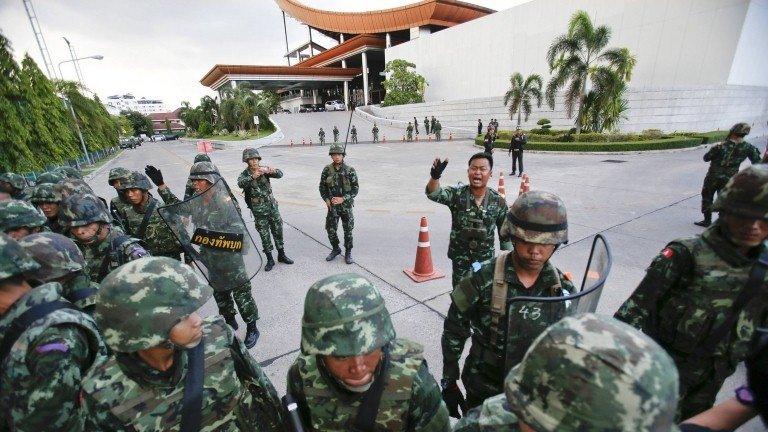
- Published13 January 2014
- Published23 August 2017

- Published8 January 2014
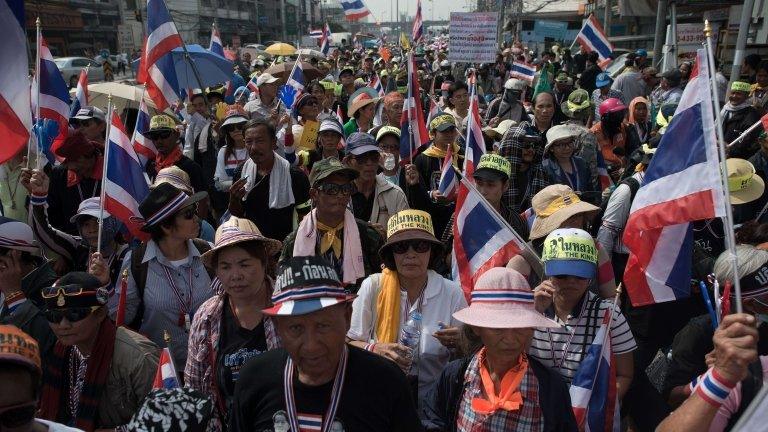
- Published27 December 2013
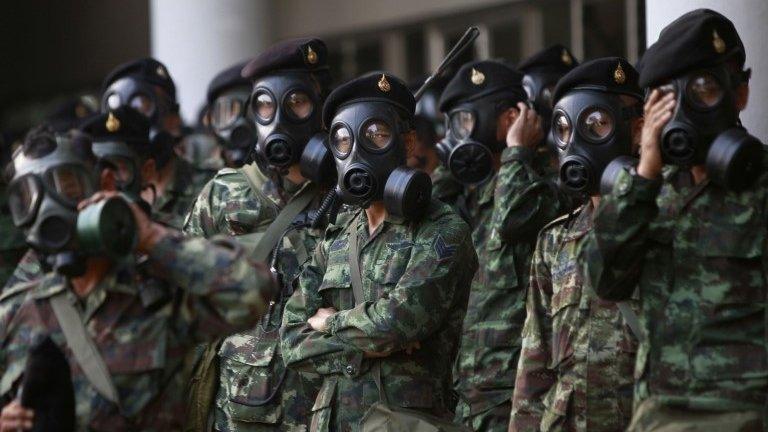
- Published26 December 2013
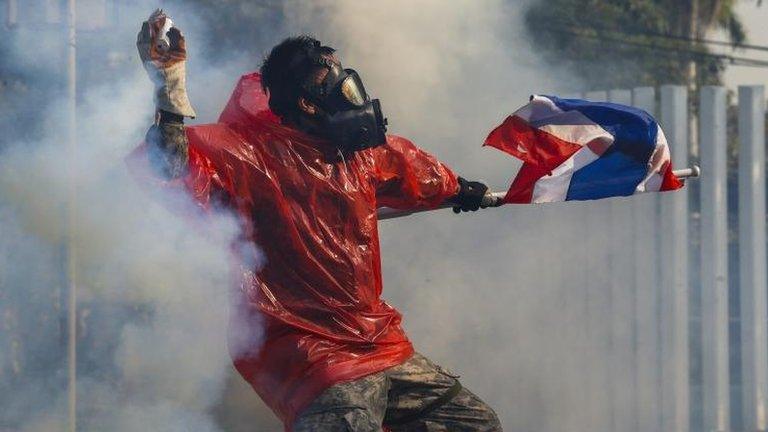
- Published23 December 2013
